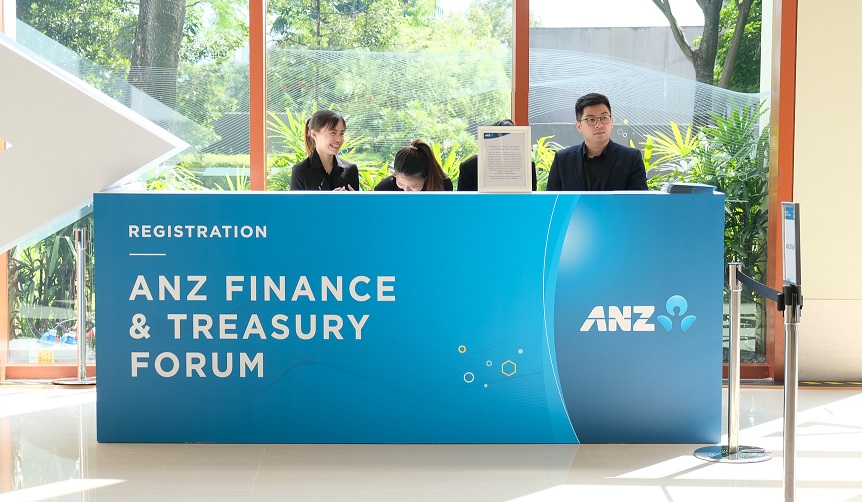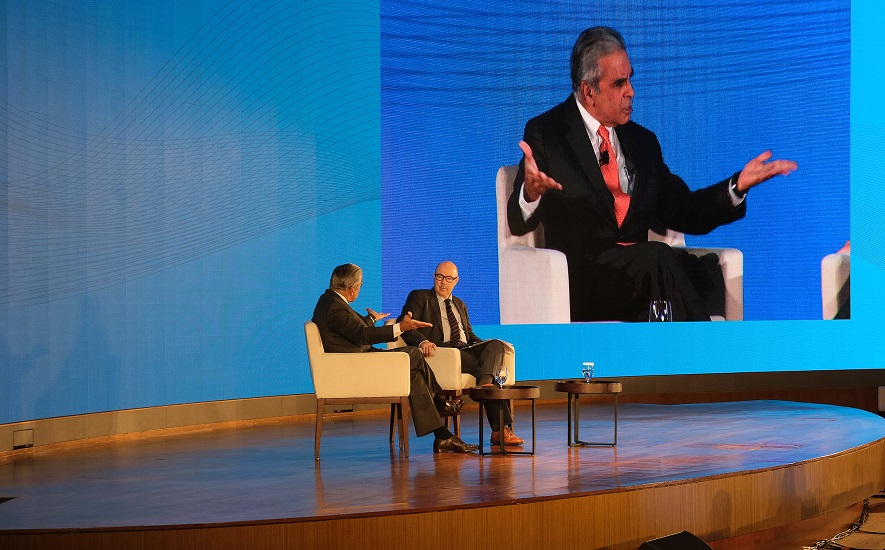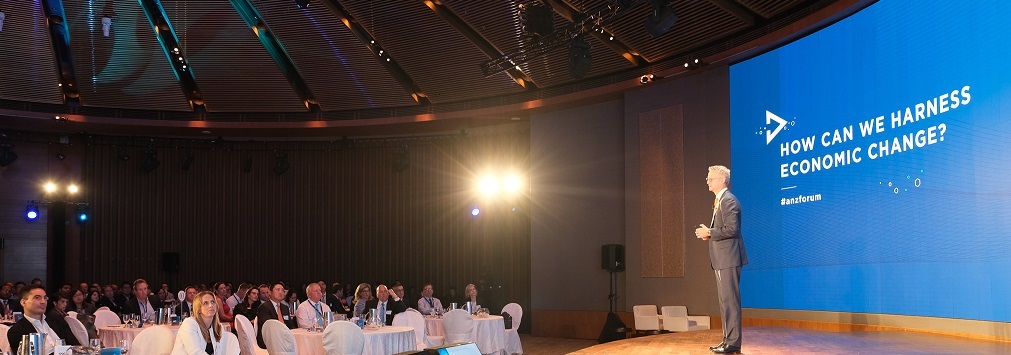AFTF 2019
In uncertain times, look to China

Businesses trying to navigate increasing Sino-US trade tensions should look to China for an indication of what to do next, according to Eurasia Group president and founder Ian Bremmer.
The long-term effects of seesawing trade developments and their impact on business were a key topic at ANZ’s 2019 Finance and Treasury Forum in Singapore.
Speaking to ANZ Institutional, Bremmer said it was ultimately China and its leadership which has made more of an impact on markets than President Donald Trump and the US.
"It’s overwhelmingly Xi Jinping, which means you need to pay a lot more attention to China," Bremmer said, calling China's movements "profoundly consequential".
"Yet if we look at most portfolio investors around the world they consider the decisions being made by Washington as [being] more consequential."
Speaking on stage in front of more than 200 ANZ clients and guests, former Singaporean diplomat and UN Security Council president Kishore Mahbubani said for 1800 of the past 2000 years China and India were the two largest global economies.
“It’s going to make the 21st century very difficult to understand if you use the 19th and 20th century lenses,” he said.

Mahbubani speaks to ANZ's Andrew Cornell at AFTF 2019.
"You need to pay a lot more attention to China."
-IAN BREMMER
Mahbubani said the US’ slow adjustment to major structural changes in the global economic order since the end of the Cold War guaranteed an extended contest between it and China.
“No matter what you do, no matter where you live, in the next 10 to 20 years your lives will be affected by this major geopolitical contest between the world’s number-one power and the world’s number-one emerging power, and it will be a very complex contest,” he said.
“There will be tensions and difficulties but at the end of the day I am still reasonably optimistic [the ASEAN region] can manage it."

Yetsenga on stage at AFTF 2019.
ANZ Chief Economist Richard Yetsenga said challenges to the global economic order run deeper than the current tariff tit-for-tat.
“The world is more integrated than it has ever been in history but the peak in global trade was actually in 2007,” he said.
“This is not a result of trade wars we are seeing today. Instead, the most important question becomes are the trade wars a personality problem or something deeper?"
"That matters because if it is a personality problem, the personalities will move on. But I don’t think things will go back to 'normal'.”
James Chalmers & Chris Sheedy are contributors at ANZ Institutional
This publication is published by Australia and New Zealand Banking Group Limited ABN 11 005 357 522 (“ANZBGL”) in Australia. This publication is intended as thought-leadership material. It is not published with the intention of providing any direct or indirect recommendations relating to any financial product, asset class or trading strategy. The information in this publication is not intended to influence any person to make a decision in relation to a financial product or class of financial products. It is general in nature and does not take account of the circumstances of any individual or class of individuals. Nothing in this publication constitutes a recommendation, solicitation or offer by ANZBGL or its branches or subsidiaries (collectively “ANZ”) to you to acquire a product or service, or an offer by ANZ to provide you with other products or services. All information contained in this publication is based on information available at the time of publication. While this publication has been prepared in good faith, no representation, warranty, assurance or undertaking is or will be made, and no responsibility or liability is or will be accepted by ANZ in relation to the accuracy or completeness of this publication or the use of information contained in this publication. ANZ does not provide any financial, investment, legal or taxation advice in connection with this publication.




